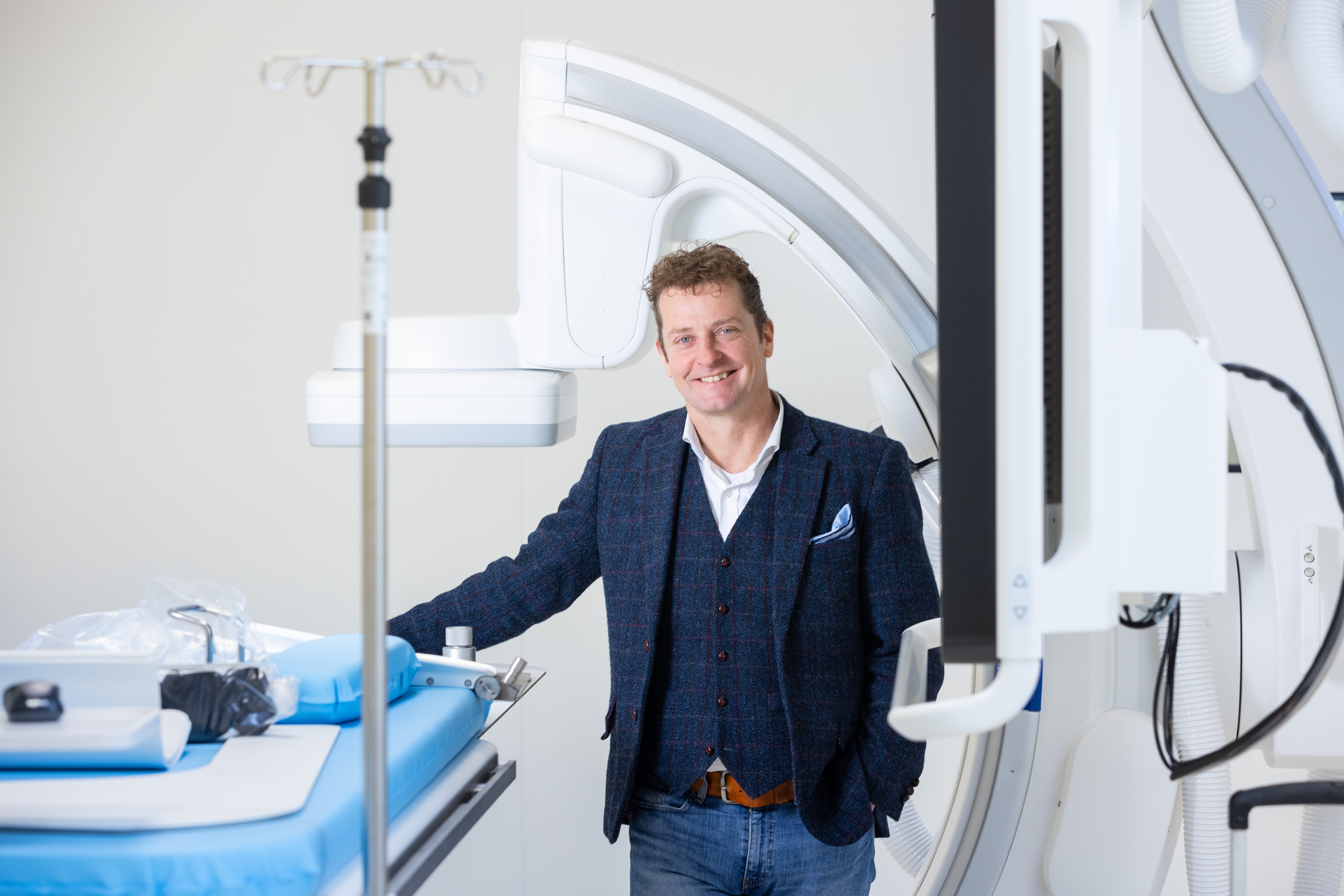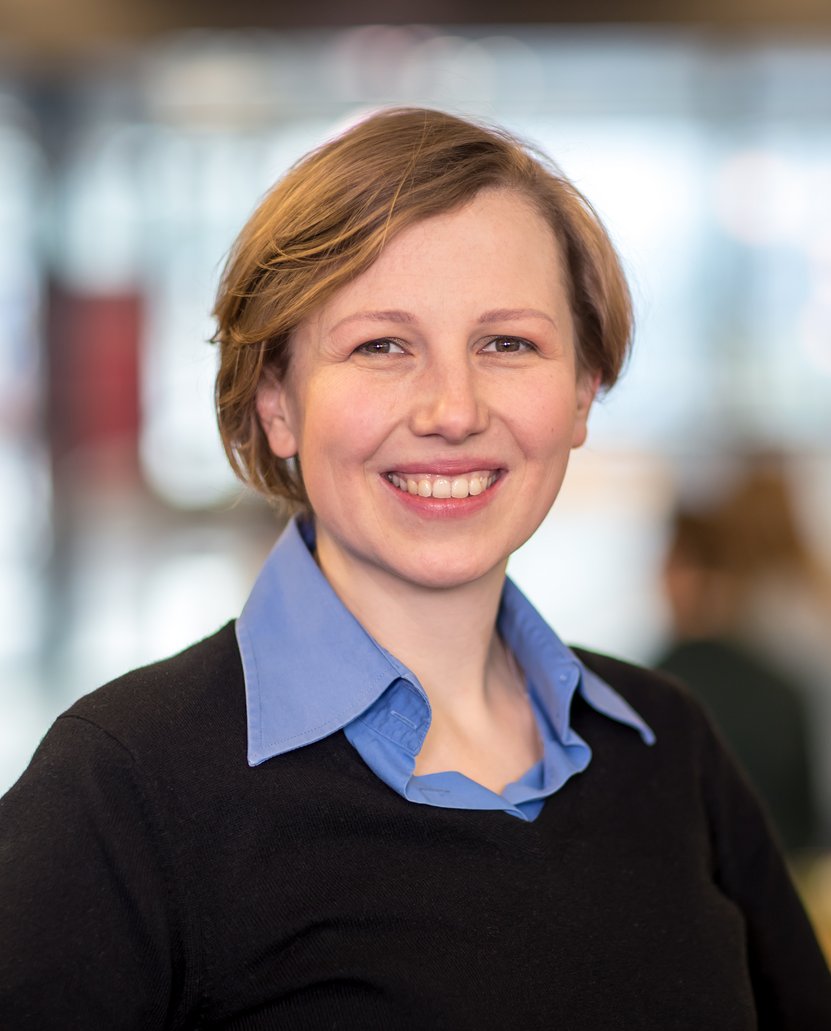Circular Engineering: at the intersection of sustainability and technology
This academic year, Maastricht University launched the bachelor’s in Circular Engineering. New programme director Gavin Phillips and first-year students Maria el Kadi and Lea Dratwa discuss the how and why of this degree, which will help students to address existing as well as future sustainability challenges.
“As an engineer, you’re a technical problem solver. As a circular engineer you take sustainability and circularity into account, you think one step further,” Gavin Phillips explains. “How do you solve the problem in a technical sense, while also keeping our society and raw materials in mind? For example, students are investigating how Chemelot can use less carbon in its production process. They also work on a range of other topics, like reducing fertiliser use in agriculture.”
- Text continues below the photo -
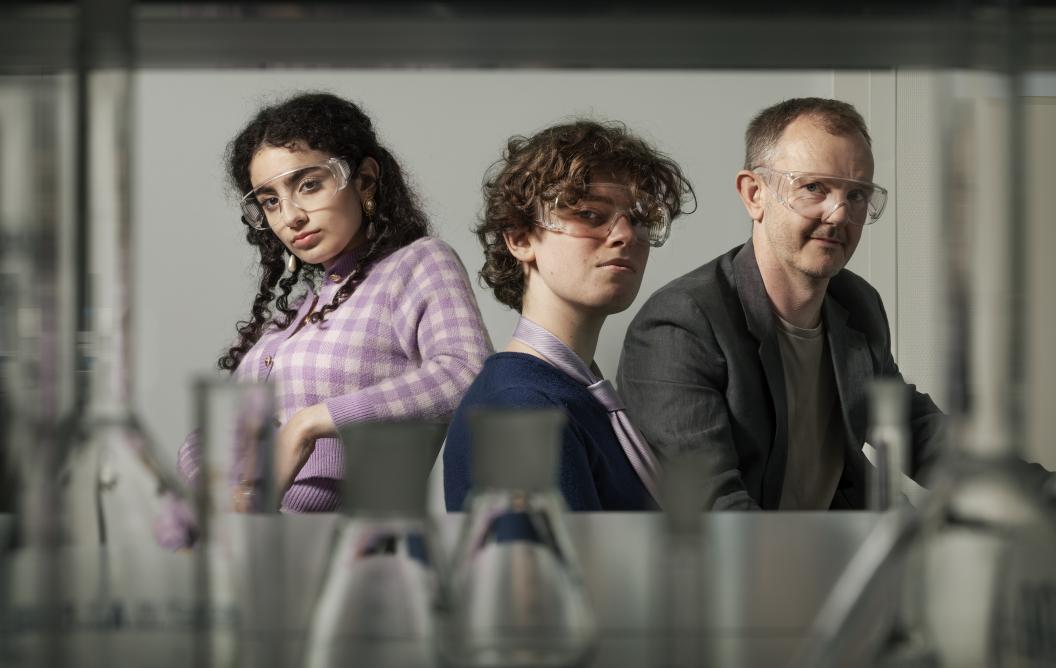
Sheepdog
Not only is the programme new, so too is Phillips. He moved from the UK to Maastricht, on the one hand to be closer to his partner in Germany, on the other because he was drawn to the position of programme director, the study programme and the Problem-Based Learning approach. “As the programme director I’m kind of a sheepdog; I keep an eye on all the moving parts and ensure that everything runs smoothly and well. But my main goal is to ensure that we train students to become good circular engineers, with strong technical skills and critical-thinking skills, so that they can make the best possible contribution in the future.”
First in the world
Phillips is not surprised that the world’s first Circular Engineering programme was initiated in Maastricht. “South Limburg and the surrounding areas have a lot of industry and therefore face major issues surrounding sustainability and energy transition. In a region like this—and of course beyond it too—new circular technologies and methods are desperately needed. It’s great that Maastricht University wants to lead the way in this field and invest in education and research.”
Gavin Phillips has been an associate professor and programme director of the bachelor's in Circular Engineering at the Faculty of Science and Engineering since 2021. He grew up in Wales and obtained his PhD on air chemistry from the University of Leicester. After that he worked as a senior lecturer and acting head of the Department of Physical, Mathematical and Engineering Sciences at the University of Chester.
Tension
In the first year, students receive a solid foundation in engineering and sustainability; in the following two years they specialise. Phillips is particularly enthusiastic about the second-year course Circular Business Development. “Students will learn about the tension between sustainability, the economy and the interests of consumers and organisations. After all, developing a new circular solution is one thing; actually implementing it in society is another. The most sustainable solution isn’t always the most financially attractive, so we have to learn to find a good middle ground. Otherwise people won’t switch to your alternative.”
Warm welcome
He looks back with satisfaction on his first academic year. “Despite online education, the atmosphere between students and staff is good. It’s also going well on a personal level; I’ve been meeting more and more people and starting to learn some Dutch. My colleagues have given me a warm welcome; everyone is friendly and motivated. And Maastricht is a nice, safe, quiet city, with Germany and Belgium just around the corner. The work culture here is different than in the UK. In Maastricht there’s more room for discussing issues and contributing ideas—as befits a university.”
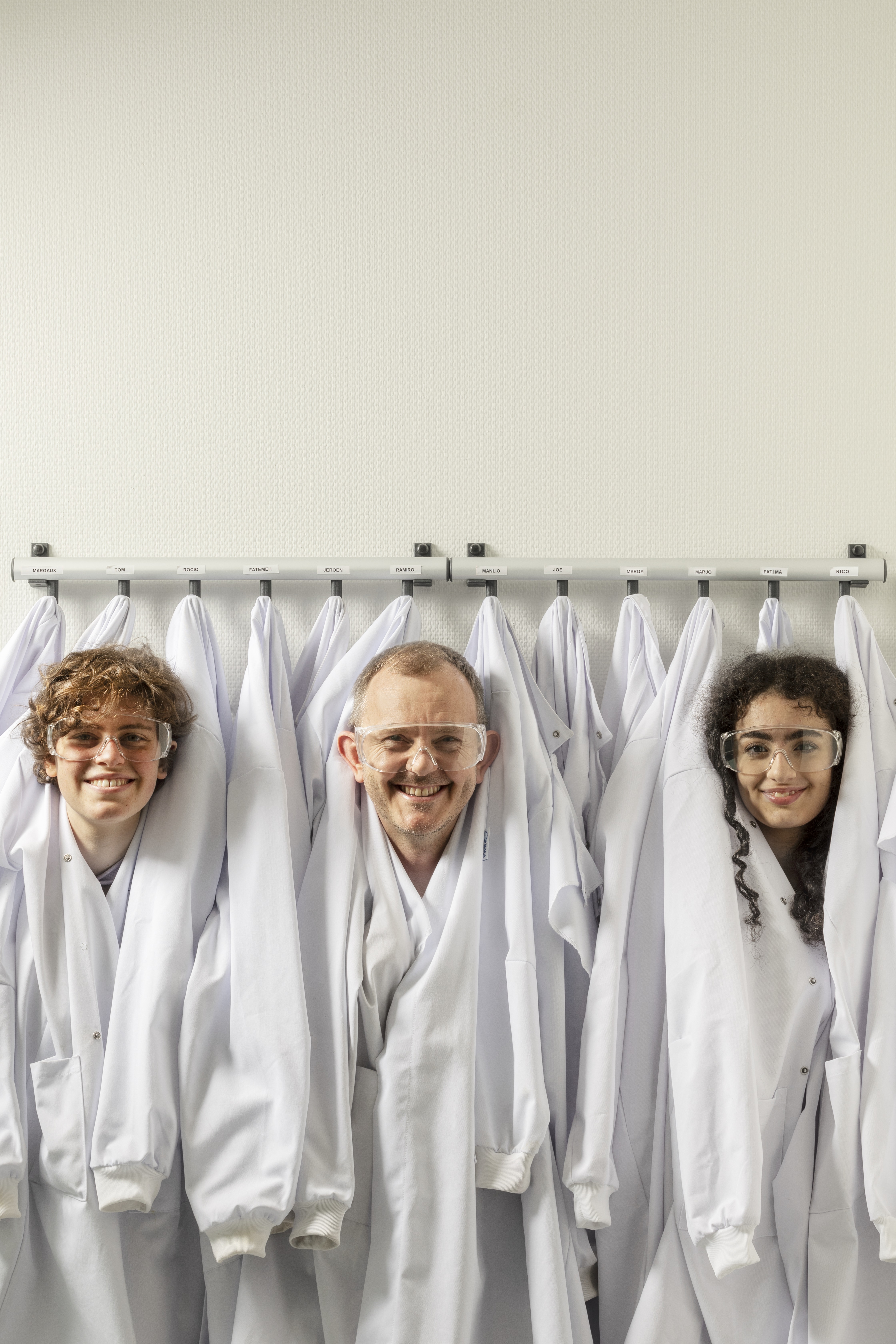
Strong female representation
‘His’ first-year students are also doing well. Currently there are 19, but next year Phillips expects 40 or 50. How would he describe the first cohort? “It’s a very international group, with students from all over the world—the Netherlands, but also Chile, Lebanon, South Africa. The current crop has quite a lot of women; I think that’s because of our emphasis on sustainability. But what strikes me most about this group is how enthusiastic, motivated and clever they are.”
- Text continues below the photo -
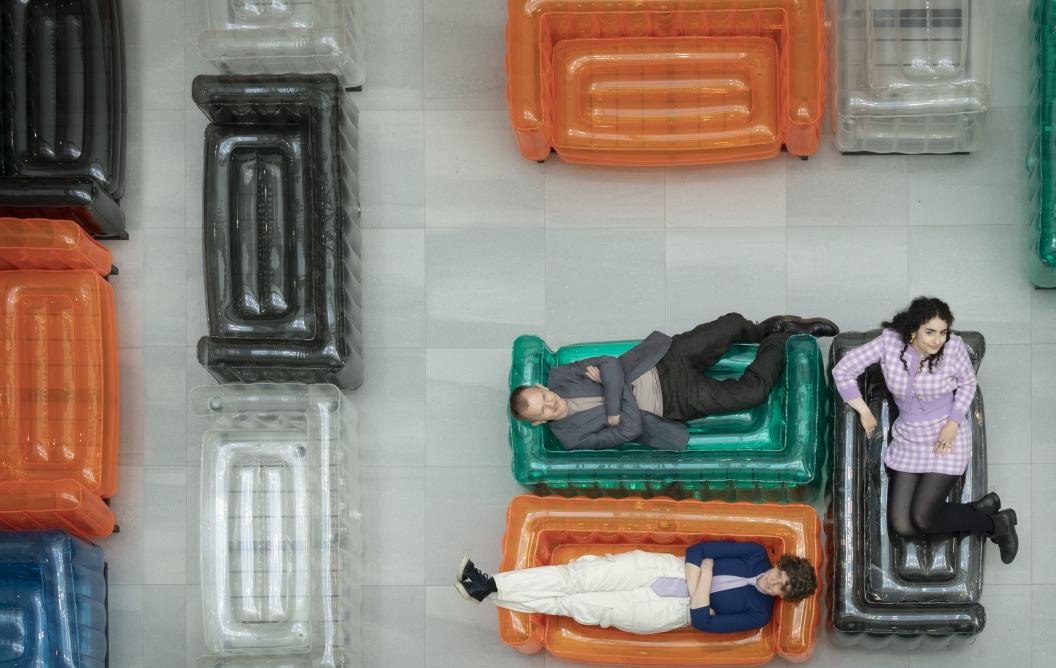
Future dreams
Like Phillips, they look back on a successful first year. ‘‘I’ve already learnt so much! My favourite subjects were Engineering in a Circular Economy and Thermodynamics,” El Kadi says. Dratwa particularly enjoyed Linear Algebra and Biotechnology. But the highlight, she says, was visiting companies like Brightlands, Chemelot and Niaga. “We got to see the things we’re studying applied in practice.” Together with their fellow students, they form a close-knit group and have good contact with the lecturers and professors. “The small scale of the programme makes it easy to approach them,” El Kadi says. “They help where they can and really want you to succeed.”
What do they want to do after their studies? ‘‘I feel like this programme will let me go in many directions,” El Kadi says. “Later I might want to do something related to biotechnology, or become a circular engineering consultant.” Dratwa sees herself contributing to a more sustainable agricultural sector. “In any case, Circular Engineering is a good start. When I tell people what I’m studying, they often say: wow, that’s the future!”
Text: Milou Schreuders
Photography: Arjen Schmitz
Also read
-
Lee Bouwman, a vascular surgeon and endowed professor of Clinical Engineering, specialises in the implementation of groundbreaking healthcare technologies. The key to success, he says, lies in the collaboration between engineers and clinicians. This approach has already resulted in a range of...
-
On April 19, during her inaugural lecture, Anna Wilbik explained how we can squeeze out the whole potential of data to the last drop.
-
Everything on Earth is interconnected and has an impact on everything else. Nothing is isolated. This insight prompted the emergence of the very transdisciplinary field of Earth System Science. The field is gaining a foothold at the Brightland Campus Greenport Venlo in the form of the research...
